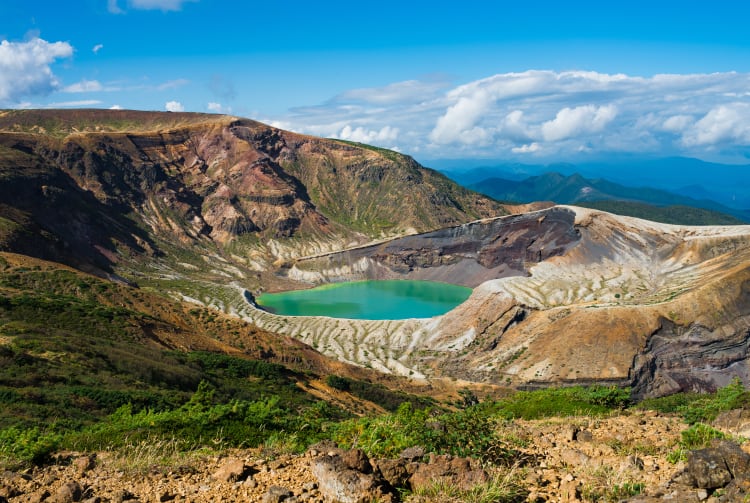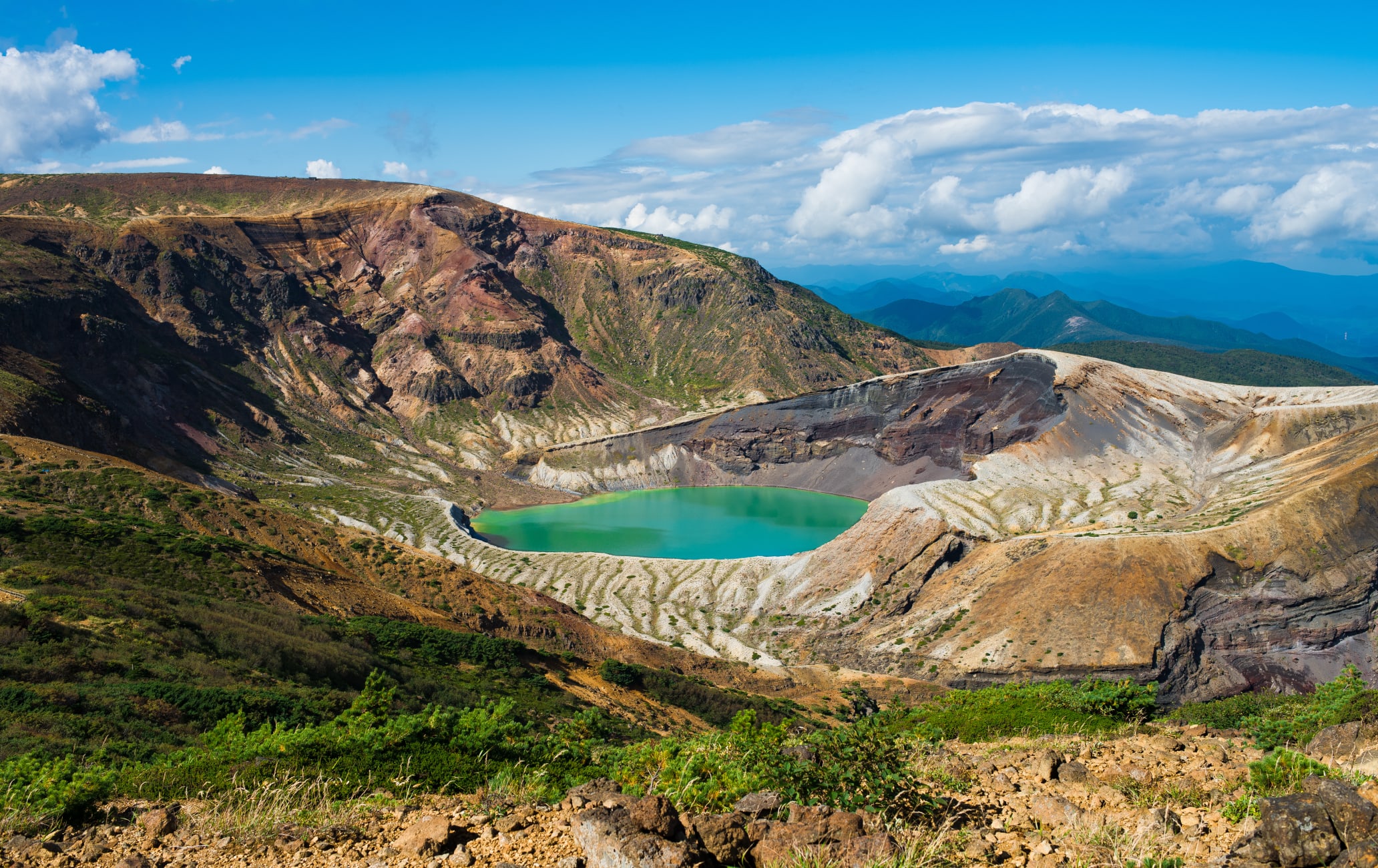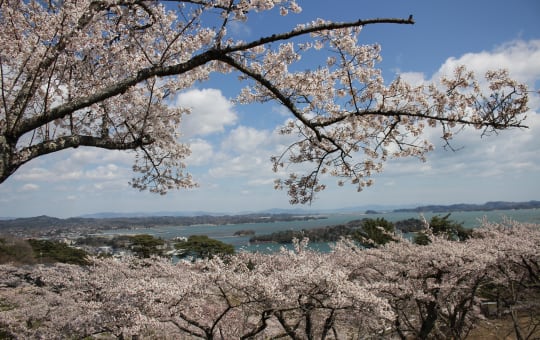Japan's natural okama cooking pot
Sitting on the border of Yamagata and Miyagi prefectures, Mt. Zao is one of Tohoku's most prominent mountains. Within the mountain lies Okama Crater, a breathtaking caldera lake famous for its changes in color. The deep, water-filled crater is similar in shape (though not in size) to an “okama” cooking pot, thus giving the volcano its name.

Don't Miss
- The changing colors of the caldera lake
- Alpine flowers in spring
- Autumn leaves on the slopes of Mt. Zao
How to Get There
Reach Mt. Zao by rental car or public transport from both Miyagi and Yamagata prefectures. Note, however, that the crater lake is not accessible during winter (usually early November through late April) due to heavy snowfall.
From Miyagi: Mt. Zao is located about 60 kilometers from Sendai. If arriving by train from Tokyo, take the JR Tohoku Shinkansen to Shiroishi-Zao Station. One bus a day, available on weekends and public holidays, will take you on the 100 minute trip to Zao-Katta Sancho. From here, walk five minutes to the mountain's viewing platform.
If arriving by car, use the Miyagi Prefecture side of the Zao Echo Line and drive to the parking lot just below Mt. Kattadake. The drive should take only under 90 minutes. From there, walk a few minutes to the viewing platform above the lake.
From Yamagata: If using public transport, board a train bound for Kaminoyama at JR Yamagata Station. Upon your arrival, use the free shuttle bus to the Katta parking area; the journey takes an hour. Take the Zao-Katta ski lift and then walk a few minutes to get to the viewing platform.
If arriving by car, use the Yamagata Prefecture side of the Zao Echo Line and drive to the parking lot just below Mt. Kattadake. From there, walk a few minutes to the viewing platform.
Alternatively, if you are spending time in Zao Onsen and want a hike before hitting the hot springs, take the Zao Ropeway to the upper station and hike 45 minutes to reach Zao Okama's crater lake.
Note: The bus to Zao Onsen is separate from the bus that goes to the caldera, but it also departs from Yamagata Station.

Hike to the top for the best views
Any trip to Mt. Zao is incomplete without a visit to Zao Okama. You can scale most of the mountain by car, bus, ropeway, or chairlift and have the choice of a five or 45-minute hike to the top of the mountain.
The lake is situated at the top of Mt. Zao, one of the most recognizable peaks in the Tohoku region, at 1,841 meters tall. The crater lake is 27 meters deep and has a circumference of 1,000 meters. The high acidity of the water means no animals can live in or drink the water. Visitors can view the lake from a distance.
Another nickname for Okama Crater is Goshikinuma or the Lake of Five Colors. The water changes color according to the intensity of daylight. Various shades of deep green and blue are the norm, but if you are lucky, you will be welcomed with a brilliant emerald or turquoise hue.


See it at its prime
Okama Crater is closed during the winter months, while the remaining months each offer something special.
During the summer months, the mountain comes alive with the flowers of alpine plants. View the fiery yellows, oranges, and reds of autumn leaves from late September to late October.
The 26-kilometer Echo Line is opened toward the end of April. At this time, the road is clear of snow, but the banks either side have up to ten meters of snow stacked from the long winter. Enjoy this awesome sight before the snow melts in mid-May.

Safety first
Mt. Zao is one of over 100 active volcanoes in Japan. Over the last few centuries, there has been some seismic activity, but no eruptions have occurred. The government continues to monitor the area with four observation posts and field tests. Meanwhile, regular and evacuation planning is carried out in case an eruption does take place. Needless to say exercise caution and good judgment and look up official advice before heading to the mountain.
Hikers are much more likely to experience common hazards associated with the outdoors. Be aware of wildlife, wear appropriate gear, stay hydrated and protect yourself from the sun.


























































